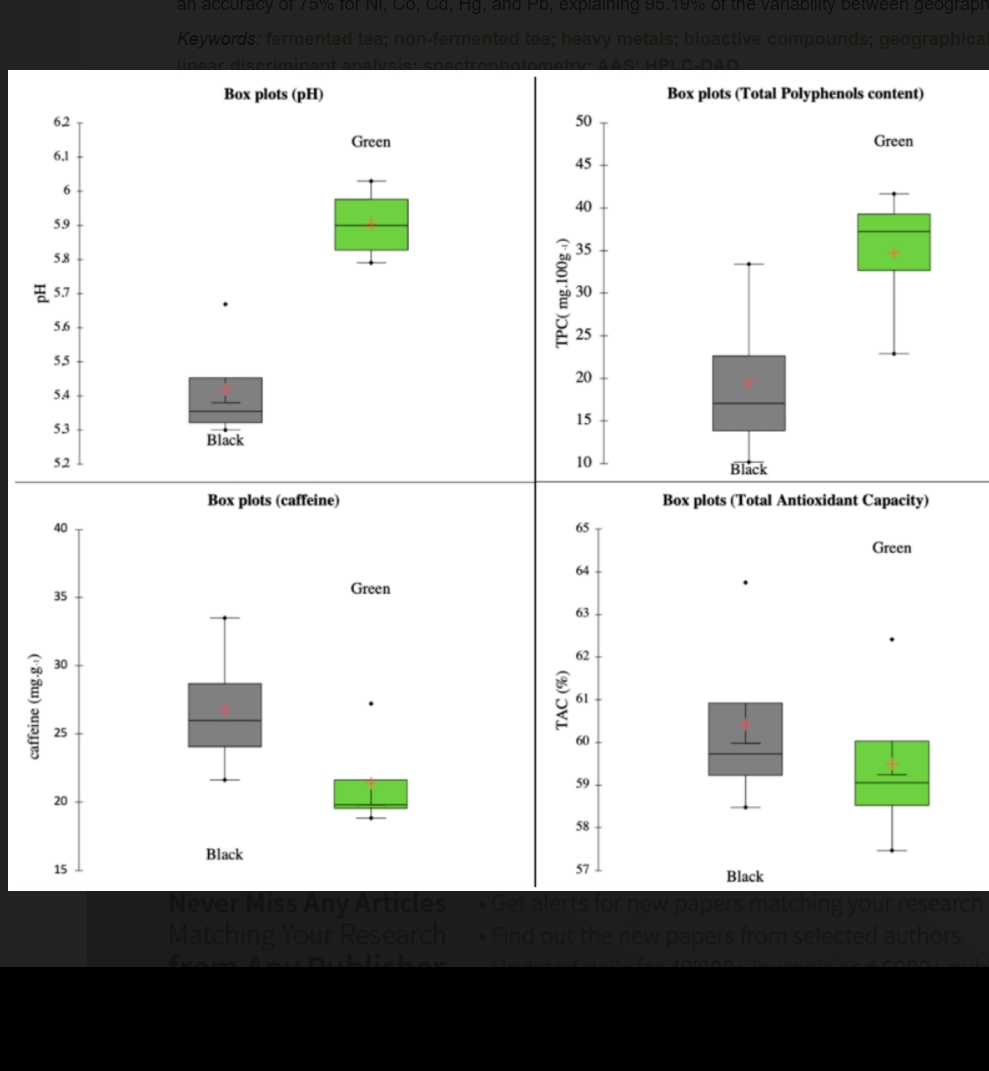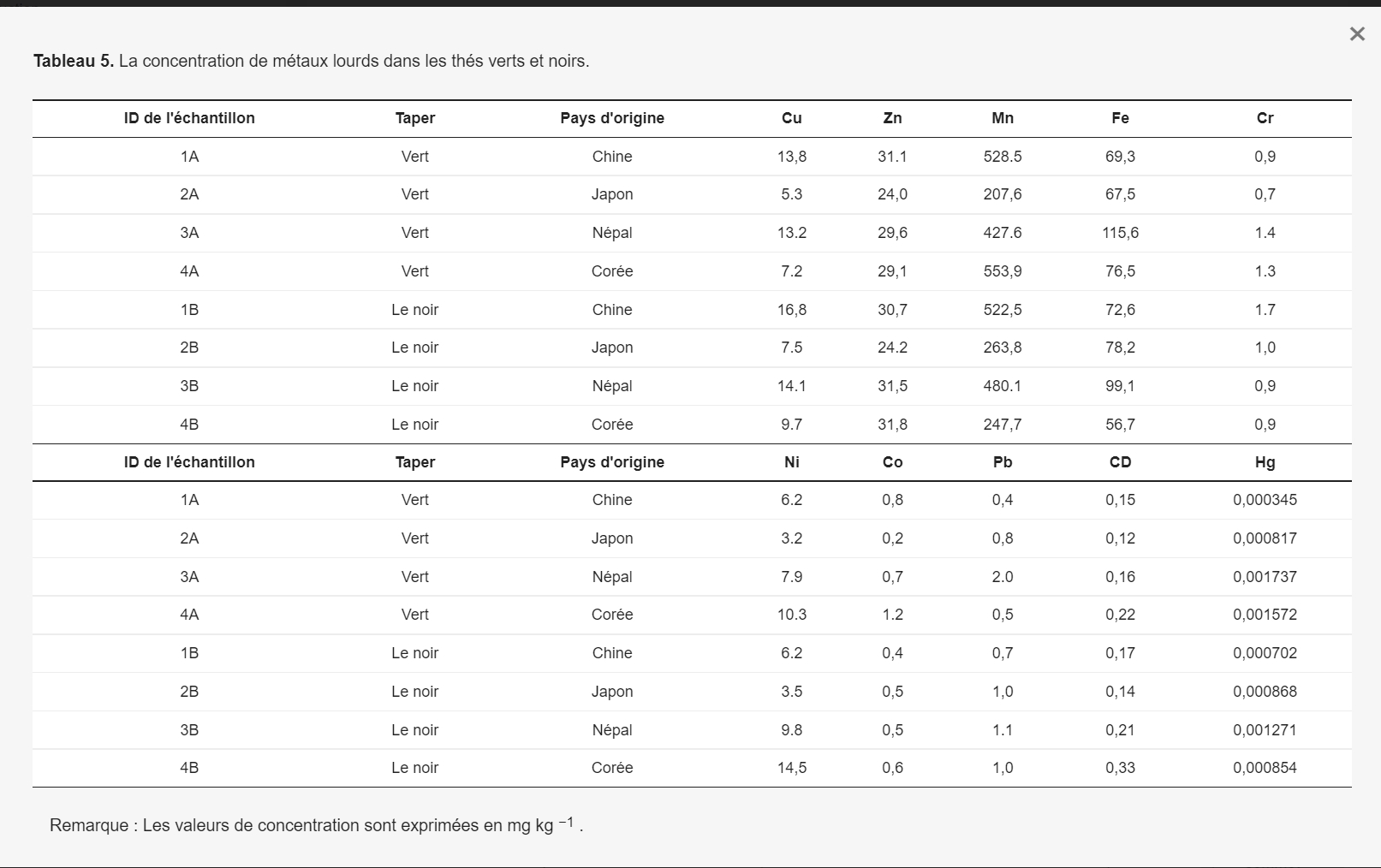Detection of Changes in Total Antioxidant Capacity, the Content of Polyphenols, Caffeine, and Heavy Metals of Teas in Relation to Their Origin and Fermentation
by Alica Bobková Foods 2021, 10(8), 1821;
Tea (Camellia sinensis) is widely sought for beverages worldwide. Heavy metals are often the main aims of the survey of teas, given that the use of agricultural fertilization is very frequent. Some of these may affect the content of bioactive compounds. Therefore, in this study, we analyzed fermented and non-fermented teas of a single plant origin from Japan, Nepal, Korea, and China, and described mutual correlations and changes in the total antioxidant capacity (TAC), and the content of polyphenols (TPC), caffeine, and heavy metals in tea leaves, in relation to the origin and fermentation process. Using UV-VIS spectrophotometry and HPLC-DAD, we determined variations in bioactive compounds’ content in relation to the fermentation process and origin and observed negative correlations between TAC and TPC. Heavy metal content followed this order: Mn > Fe > Cu > Zn > Ni > Cr > Pb > Co > Cd > Hg. Given the homogenous content of these elements in relation to fermentation, this paper also describes the possibility of using heavy metals as determinants of geographical origin. Linear Discriminant Analysis showed an accuracy of 75% for Ni, Co, Cd, Hg, and Pb, explaining 95.19% of the variability between geographical regions.















